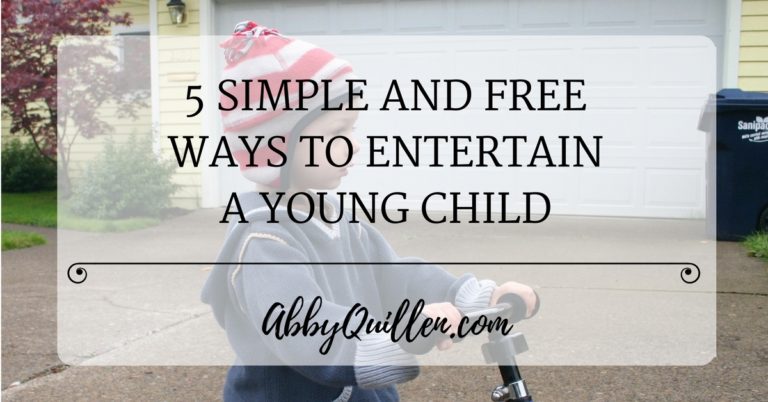To Watch or Not to Watch
It’s TV Turnoff Week, or as Adbusters calls it Digital Detox Week. You can learn more about it here. The idea is to take a break from the television, computers, and digital gadgets that have become such a huge part of most of our lives and see what we might be missing out on, like spring flowers, for instance.
“The goal is not to dwell on the pitfalls of our electronic devices but to reflect on ourselves. And who knows, if the magic begins to creep back into your life, the digital detox may never end.” – Adbusters
I abstained from all screens for the entire week last spring, and I had a great time. I completely recommend it. At the end I felt relaxed and recharged, and it helped me strike a better balance with online time and family time – at least for awhile.
Unfortunately this year, I can’t afford to power down for an entire week, because that would mean, um, not working. But I have family coming for a visit soon, and I plan on taking my own little digital vacation then, since I’ll be taking some time off from working and blogging anyway.
If you’re thinking of celebrating TV Turnoff Week and on the lookout for some non-digital activities for the week, check out the links under “Homegrown Entertainment” over there on your right.
Last April I reviewed Living Outside the Box: TV-Free Families Share Their Secrets by Barbara Brock (2007). I thought you may enjoy the review if you missed it:
The statistics about television-watching in America should concern everyone:
- The TV is on for 6 hours and 47 minutes a day in the average house.
- The average person watches more than 4 hours of TV a day. (That adds up to 9 years of a 65-year-old’s life).
- 66% of people watch TV while eating dinner.
- 70% of daycares use TV to occupy kids during a typical day.
What does this mean for America’s kids? The average child spends 1500 hours a year watching TV, as compared to 900 hours in school, and sees on that flickering screen:
- 8,000 murders by the end of elementary school.
- 200,000 acts of violence by the age of 18.
- 20,000 thirty-second commercials a year.
It’s hard to imagine that all this TV isn’t having detrimental effects on Americans, especially children. And sure enough, anecdotal evidence suggests that too much TV contributes to all kinds of behavioral problems at home and in school. Kids have attention problems. They fight with each other over TV programs. They beg for brand-name products. They grapple with weight issues and obesity. They don’t play outside in nature. They don’t read.
When we turn on the tube, do we turn off life?
In Living Outside the Box, Barbara Brock mentions the personal and cultural ills TV undoubtedly contributes to, but it’s not her focus. Instead she asks us to ponder what we miss out on when we’re sitting and mindlessly observing so much of our lives away. After all we could be reading, writing, painting, crafting, traveling, cooking, baking, hanging out with friends, playing instruments, singing, gardening, exploring, running, walking, or just playing. We could actually be living.
A very small minority of Americans (less than 1%) lives TV-free. Brock sent 500 of them surveys to find out about them. Who are these rebels? Well, they vary widely, but the striking thing is, most don’t miss TV at all. More surprising, their kids don’t seem to miss it. Brock’s research makes you wonder – are kids more addicted to the television, or are their parents? Even if you can’t seem to drag your kids away from the tube, you might be surprised at their reactions if you shut it off altogether. Of kids who pledged to ditch TV for three months, many reported it as the best time in their lives.
TV night: Relaxing or stressful?
Brock makes a lot of cogent points, but one most registers with me: she points out how watching TV, even in small amounts, structures our time. For instance, you don’t want to miss a favorite program so you rush home from a night out, or you race through dinner, or you hurry through a phone call with a friend. You always have one eye on the clock.
Sure enough, we have a TV night in our house, and it’s always more stressful than other nights. We rush around to get everything done before the shows come on. Usually our evenings just sort of unfold. We turn on music, we talk, we play with the baby, we clean, we play games together, or we read. We glance at the clock occasionally, but it doesn’t dominate our nights. I feel better on these TV-free nights. I sleep better. But I’m not sure it’s the TV that makes me feel stressed, or just watching the clock.
The computer counts too.
I was surprised that by Brock’s definition, my family is already TV-free. Brock considers anything under six hours a week TV-free, and we watch about two to four hours. But every time I wanted to feel smug about my TV-free ways, Brock slipped in a mention of computer time. Oh yeah, that. I know aimless Googling and Facebooking doesn’t make me happy, but I find myself clicking away at the mouse a little too often.
Searching for balance.
Living Outside the Box is a fast and easy-to-read book. It will undoubtedly make you ponder how entrenched TV is in our lives and what kind of impact it’s collectively having on our society. Could Brock’s arguments convince a die-hard TV addict to change her ways? I doubt it. And if you lean toward the TV-free life already (which I suspect most people who read the book do) you may feel a tad hopeless reflecting on how entrenched television is in most people’s lives – a little like a teetotaler stuck in a tavern. After all, it doesn’t matter if you’re hellbent on knowing all your neighbors better than the cast of Survivor unless your neighbors feel the same way. However, if you’re thinking about ditching the TV, and concerned that it might turn your kids into social deviants, Brock’s research might ease your mind.
I picked up Living Outside the Box because my baby’s getting to the age where the television sucks him in. When he gazes at it and his eyes start to glaze over, my instinct is to shut it off – for good. It’s not that I think TV will destroy him or make him into a zombie. After all, I watched my share of I Love Lucy marathons as a kid. I just want his childhood to be full of music, books, friends, and nature. I want his time to be unstructured and unhurried. I want him to be satisfied with all of the comforts and joy we have in our lives, not to be constantly told he needs more toys, cereal, clothes, or candy to feel good. Most of all, I want him to have a real life, not a childhood spent observing fictional kids on television living.
But I’m just not convinced we should put the TV out with the garbage. One of those four hours of TV we usually watch each week is The Bill Moyer’s Journal on PBS, and every time I start thinking of TV as evil, I see Moyer’s lopsided grin. That show, and a few others – like Curb Your Enthusiasm, Six Feet Under, and Freaks and Geeks – have added something to my life. They’ve make me think, or laugh so hard I can’t breathe, or see the world a little bit differently. They’ve made me happy. I know the real answer is to only invite in the television programs that stimulate my family. But what a challenge that is – especially with kids.
What do you think?
I’d love to hear how TV fits into your life. Do you have TV-free or TV-addicted kids? Have you struck some kind of balance? Are you participating in TV Turn-Off Week? Why or why not?




We don’t watch television and we don’t have cable. We have a relic TV set though, which we use for the rare video.
So our kids don’t watch TV at home. They’re allowed to watch it outside the home, but often aren’t particularly interested.
But we didn’t have TV before children either. We genuinely don’t find TV engaging. It sometimes feels odd to know it’s such a big issue for most people, when it’s such a non-issue here – we’d just rather do other things.
We have a tv with two channels; my husband likes news and hockey but is busy so doesn’t spend tons of time on either (and he’ll check out international news online). I don’t care about TV but will turn it on when I jump on my treadmill but then turn it off when I’m done. My kids have a set number of media time/wk but can only use this on the weekend and if they’ve met their ‘quota’ for minimum phys-ed time. My son loves video games and the movies we watch together. My middle daughter has never really liked tv/video games but occasionally enjoys them with a friend and my youngest would love to do nothing but stare at a screen or play games on my laptop if given the opportunity. It isn’t a big issue in our home – everyone understands why we limit tv/media time and respects the boundaries. I spent much of my own childhood without tv as did my husband (in Africa) so we’ve never had issues with this. We have a satellite dish and will turn it on for special events like the olympics then put it back on a ‘seasonal disconnect’ (no connection fees this way). When we’ve paid for satellite in the past, I felt we were throwing money away – rarely is there anything worth watching. We all read tons and my children are artistic/muscially inclined. I’m sure this is in part b/c they have needed to learn how to fill their time productively rather than plunking down in front of a screen.
Funny, I didn’t know that this was no-tv week, but we didn’t watch any tv. I agree, our nights are much more relaxed and enjoyable. Now that I am working during the day, I just feel like I need to spend that time in the evening enjoying my child and husband, not spaced out with the tv on. I am someone who loves movies and good tv shows – I get hooked on anything with a good story or interesting characters – so giving up tv can be hard for me, but I do really enjoy the times that I do! We can now connect our laptop to the tv, so have less pressure to watch the shows we want to see at a certain time, knowing that we can watch them on the weekend. That really helped me enjoy not watching tv this week, knowing that I wasn’t necessarily missing an episode forever if I didn’t see it right then.